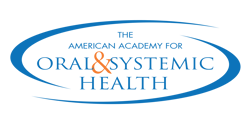Unintentional Heartbreak: American Heart Month and the Oral Health Connection
February In-Focus
Maintaining good oral hygiene is not just about having a bright smile; it is a crucial aspect of overall health. Recent research has shed light on the intricate connection between poor dental health and cardiovascular disease. While many might see oral and heart health as unrelated, the daily emerging research supports otherwise. This blog will explore the surprising link between the two and why caring for your teeth might save your heart.
The Oral-Systemic Connection
The mouth is a gateway to the body, and its health can significantly impact other bodily systems. The link between oral health and systemic conditions is the oral-systemic connection. One of the most startling revelations in this area is the association between poor dental health and cardiovascular disease.
Periodontal Disease and Inflammation
Poor dental hygiene along with many other contributing factors, can cause periodontal disease, a gum and bone infection. When plaque builds up on teeth, it can lead to inflammation of the gums, causing them to pull away from the teeth and form pockets. These pockets become a breeding ground for bacteria that cause infection. The bacteria in the infected gums can also enter the bloodstream, a phenomenon known as bacteremia. Once in the bloodstream, these bacteria can travel to the heart, blood vessels, brain, and other vital organs, potentially causing infections and disease.
Bacterial Invasion and Cardiovascular Complications
Researchers have identified specific virulent bacteria associated with periodontal disease found in the plaques of individuals with atherosclerosis. (Czerniuk et al., 2022) This supports the direct involvement of oral bacteria in developing systemic inflammation and cardiovascular conditions.
Inflammatory Markers and Cardiovascular Risk
Inflammation plays a pivotal role in the development and progression of cardiovascular disease. Chronic inflammation is linked to atherosclerosis, the formation of arterial plaques, which can eventually lead to heart attacks, strokes, and dementia.
Studies have shown that individuals with periodontal disease often have elevated levels of inflammatory markers, such as C-reactive protein (CRP), in their blood (Bansal et al., 2014). Elevated CRP levels are associated with an increased risk of cardiovascular events. The inflammation caused by poor dental health may contribute to the systemic inflammation that raises the risk of heart disease.
Preventive Measures for Heart and Oral Health
Maintaining good oral health is crucial in preventing oral and cardiovascular diseases. Simple practices such as regular brushing, flossing, and professional dental check-ups can go a long way in preventing infected teeth and gums and reducing the risk of having a heart attack, stroke, or developing dementia. In addition to oral care, adopting a heart-healthy lifestyle can further reduce the risk of cardiovascular disease. This includes maintaining a balanced diet, engaging in regular physical activity, and avoiding tobacco use.
Conclusion
The connection between poor dental health and cardiovascular disease highlights the importance of viewing the body as a holistic system. Taking care of your teeth is not just about aesthetics; it is a critical component of overall health. By understanding and addressing the oral-systemic connection, individuals can take proactive steps to protect their smiles and hearts. Awareness of the interplay between oral and cardiovascular health, early diagnosis, and prevention can contribute to a longer, healthier life.
AAOSH Resources
Within our library of resources, AAOSH offers a strong Core Curriculum that includes many courses on the mouth-heart connection. We hope you will enjoy these free resources from our course library for February.
In addition to over 270 hours of continuing education hours within 14 core competency areas, AAOSH members also receive a discount on the Bale-Doneen Preceptorship - a science-based methodology that is medically proven and accepted to both prevent and reverse heart attacks, strokes, and many other chronic conditions such as type 2 diabetes, dementia, kidney disease, and erectile dysfunction to name a few. To learn more about joining AAOSH, visit https://www.aaosh.org/about-membership.
References
Bansal, T., Pandey, A., & Asthana, A. (2014, July 20). C-Reactive Protein (CRP) and its Association with Periodontal Disease: A Brief Review. Journal of Clinical and Diagnostic Research, 8(7), ZE21–ZE24. National Library of Medicine. 10.7860/JCDR/2014/8355.4646
Czerniuk, M. R., Surma, S., Romańczyk, M., Nowak, J. M., Wojtowicz, A., & Filipiak, K. J. (2022). Unexpected Relationships: Periodontal Diseases: Atherosclerosis–Plaque Destabilization From the Teeth to a Coronary Event. Biology, 11(2), 272. 10.3390/biology11020272
